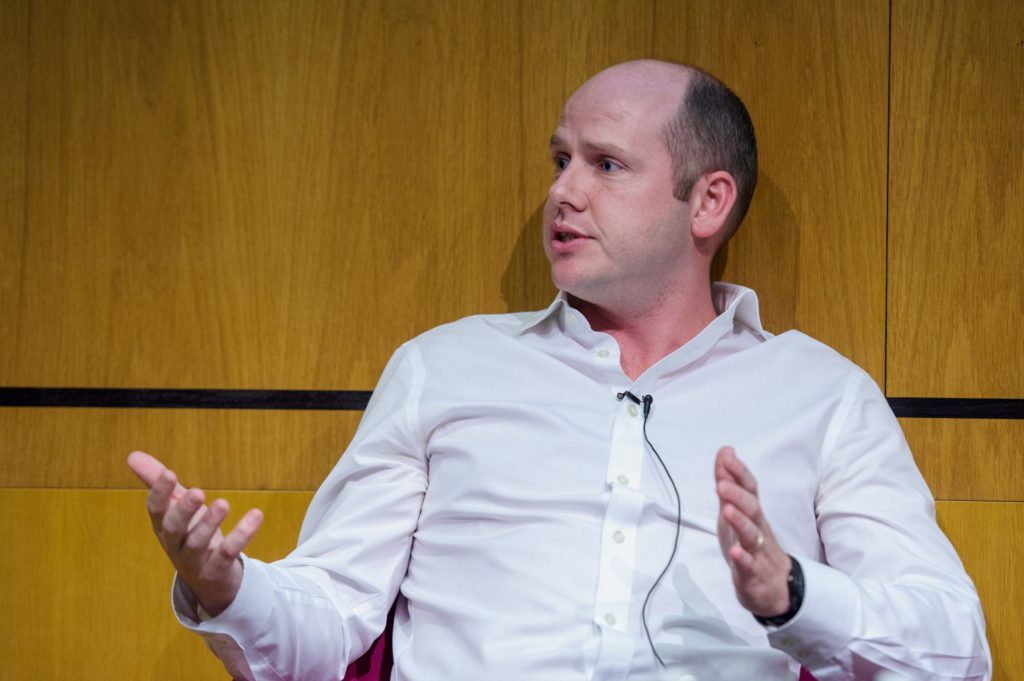Marketplace leader Daniel Callaghan (CEO Talmix), marketplace laywer Charlotte Pham (Technology Lawyer, Berwin Leighton Paisner) and trust expert Edward Ungar (Chief Commercial Officer, Onfido) had a fascinating discussion on how to build trusted marketplaces during Marketplaces Connect 2017.

The panel was facilitated and moderated by Kamila Hankiewicz, co-founder of IamIN, a split payment platform for groups. Here is a summary of their insights.
How do you establish trust in a marketplace?
Edward Ungar, Onfido CCO, began by referring to Rachel Botsman who has written about trust (as well appeared in a highly praised TED talk).
You have to trust the idea first –in the case of BlaBlaCar, the long distance carpooling service and Onfido client, that means getting in a car with a comparative stranger and driving across the country. Then you have to trust the platform, that there is a legitimate marketplace for the service. Finally you have to trust the user whose car you are getting into.

So these are several barriers or “trust hurdles” that you have to go over. This is where verification comes in as an added layer of trust between the users on both sides of the equation.
For Daniel Callaghan, Talmix CEO, an average transaction on the marketplace is £30k. It is therefore essential that clients trust that they are securing the services of the right consultant.
Talmix’s role as a marketplace is to create a framework where trust can take place.

Talmix does this in two ways: firstly by screening vendor profiles and checking references; secondly by carefully matching consultants to assignments. Companies also have full discretion about how they list their vacancies and can do so anonymously if the assignment is confidential. After completion of the project, Talmix asks the company to rate the consultant and vice versa – anyone who gets a poor review is removed from the platform.
Technology lawyer Charlotte Pham commented that how you create trust differs according to the type of platform.
A professional services platform might have inherent levels of trust in the service provider, either because of the brand or because people professional reputation is at stake. But this is quite different from a Consumer to Consumer (C2C) platform, that would be more reliant on community-based assurances through ratings, reviews and online verification. In Business to Consumer (B2C) marketplaces however, it is more of an operational issue, such as a money back guarantee scheme or offering to sort out any problems for the customer.

How important is it to build a community and how does this affect the marketplace or ecosystem?
Again Charlotte believes that this varies by type of marketplace. For C2C marketplaces it is clearly important to build a community. For B2C marketplaces, it is necessary to build trust with buyers and sellers, which often means building two communities.
Talmix aspires to be “the home of independent business talent” and so is building a community for its consulting network. For individuals who are often “single person firms”, there is the opportunity to gain access to research, insights and services that they would never be able to buy on their own.
Edward Ungar differentiated companies who explicitly state they are using verification services from those who do so implicitly, because “they don’t want stories about bad experiences” – for example, workers who are not who they say they are or don’t have the right to work in the country.
Edward commented that it can be a challenge to increase transparency with companies who have yet to have a bad experience, or where there is a low perceived risk. Clearly there is a cost to verifying users, depending upon the layers of verification required. For most marketplaces, it is necessary to invest in trust to grow the business beyond early adopters.
Do you have examples of breach of trust? What was the impact on sales?
Edward has seen a 10X spread in the incidence of trust breaches in the different segments that his company works with, ranging from 0.5% to 5% of transactions, depending upon the “incentives to defraud users”. The risk in monetary terms or trust in the platform can be very severe.
Charlotte has seen lots of problems with sites not preventing dishonest reviews. She cited the recent case of the Italian Competition Enforcement Authority fining TripAdvisor for failing to prevent them. Similarly, the UK Competition and Markets Authority recently sent an open message to all retailers about the transparency of customer reviews to prevent breach of trust. This is because retailers often like to control which reviews get published and how they are ordered in a way that can mislead customers.
Daniel said
It comes down to how you define the rules of the game. It is the marketplace’s responsibility to set the framework for how deals can take place.
Talmix has a number of measures in place to make sure the rules are being followed, including a mediation policy and an escrow account to take money in advance when appropriate. He sees it vital to have upfront transparency about how you want the business to run and how you want both parties to conduct themselves on your platform. In its six years of trading, the company has only experienced a handful of issues about the quality of work, but it only took one discrepancy for Talmix to decide to set up their trust framework, adding that “You learn pretty quick when it’s your business.”

If you’d like to continue discussing and sharing insights on platforms and marketplaces, join the Platform Strategy and Marketplaces Connect communities on Linkedin. You can also sign-up to your newsletter for latest news on all things platforms and marketplaces.
For those who are not familiar with Talmix, Onfido andBerwin Leighton Paisner, here is what these companies do.
Talmix
Talmix is the world’s largest marketplace for on demand business talent. Businesses access a carefully curated community of over 27,000 independent consultants working across 132 countries and hundreds of industries to deliver on short term projects or assignments and manage their organisations extended workforce through the platform.
Onfido
Onfido delivers next-generation background checks, helping businesses across the world verify anyone, anywhere, without the need to meet them face-to-face.
Berwin Leighton Paisner
Berwin Leighton Paisner is an international law firm with 14 offices around the world including in the UK, Russia, Singapore, Hong Kong and United Arab Emirates amongst others
Photo credit © 2017 Anthony Upton

2 comments on “Talmix, Onfido and BLP: Getting over the trust hurdle”
Comments are closed.